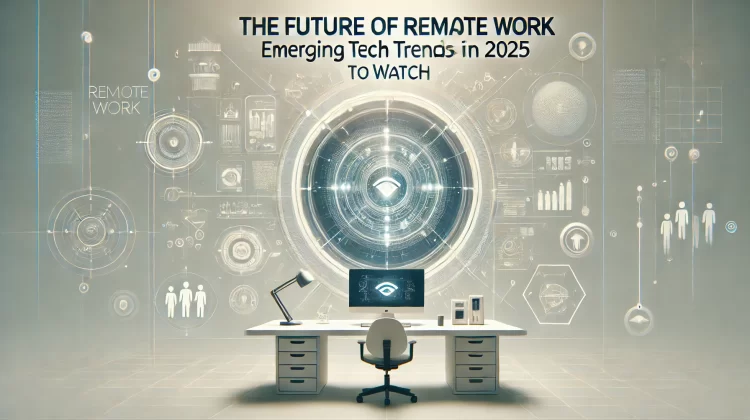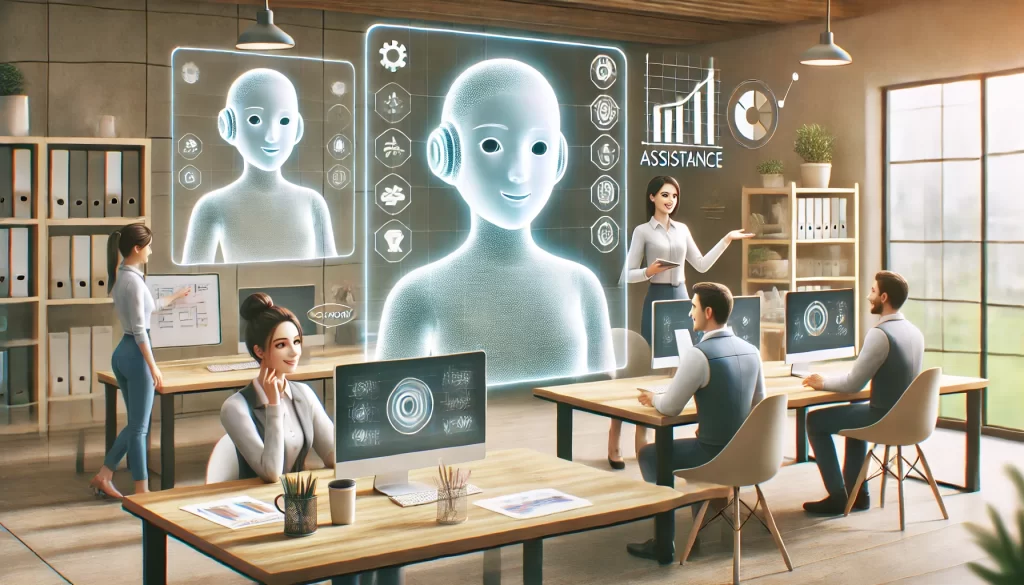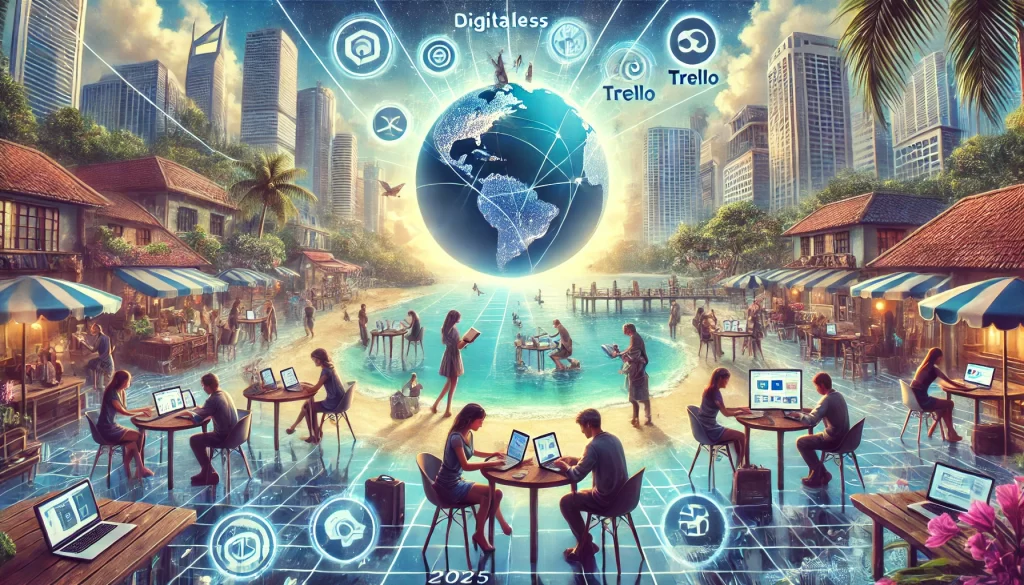
As remote work reshapes the professional world, new technologies and tools are evolving beyond just convenience, promising to transform how we work, collaborate, and innovate. This shift brings up essential questions about job replacement and stability but also opens doors to enhanced efficiency and greater creativity, leaving workers with more room for strategic thinking and meaningful tasks AI can’t fully master.
AI-Powered Personal Assistants: The New Teammate
Imagine AI assistants like Notion or Asana evolving into true collaborators, handling not just task management but also workflow and project optimization. Instead of focusing on repetitive tasks, workers can turn their energy to complex, strategic problem-solving and creative ideas that AI isn’t equipped to tackle.

Global, Borderless Jobs
In 2025, digital nomadism is mainstream, with remote work breaking geographic boundaries through digital nomad visas and cloud-based platforms like Trello and Microsoft Teams. Employers value global talent and creativity over physical presence, allowing employees to live and work from dream locations, whether it’s a beach retreat or bustling urban center.

Immersive Virtual Workspaces
With VR solutions like Spatial and Horizon Workrooms, remote workspaces are more than video calls—they’re immersive virtual offices where teams collaborate in simulated 3D environments. By connecting in real-time and engaging with colleagues in a shared virtual space, employees can feel more engaged and connected, even from afar.
Expansive Connectivity with Satellite Internet
Tools like Starlink are redefining high-speed connectivity, extending internet access to previously unconnected areas and creating more opportunities for remote productivity from anywhere on the map. From cruise ships to desert outposts, workers stay connected to the world and have more flexibility in location choice.
Advanced Cybersecurity and Privacy
With advanced cybersecurity demands, companies are implementing Zero Trust Architecture and AI-driven privacy tools to protect sensitive data. Platforms like Okta and Cisco Duo offer robust authentication protocols to guard remote work environments, giving both workers and companies peace of mind as they embrace greater digital integration.

Integrated Workflows for Effortless Collaboration
Modern tools like Slack, Zoom, and ClickUp are transforming how we work by centralizing communication, task management, and productivity features within integrated systems. ClickUp’s AI capabilities take collaboration further by summarizing workload allocations and progress, helping teams track both personal and team-level tasks at a glance. These platforms streamline workflows and reduce “tool fatigue” by minimizing the need for constant app-switching, allowing remote teams to focus on what matters with greater clarity and efficiency.
A Philosophical Shift: Are We Entering a Dystopian Work Era?
The digital transformation of work is reminiscent of sci-fi films like Subservience, where AI tools raise questions around autonomy and identity. However, unlike dystopian tales, the human element—critical thinking and creativity—remains irreplaceable. AI’s role as an aid rather than a replacement can amplify human capabilities, leaving space for tasks AI hasn’t mastered, making work feel more impactful and strategic.

Looking Ahead: Embracing the New World of Work
While remote work promises flexibility and innovation, it also raises essential considerations about privacy, autonomy, and the redefined value of human labor. As the lines between digital and professional life blur, 2025 is shaping up to be a year of convergence, redefining how we connect, innovate, and grow in this new digital landscape.
Leave a Reply